A Complete Guide to Creating a Relaxing and Healthful Space

If you’re considering adding a sauna to your home, the basement is an ideal location. Not only is it a private space, but it also provides a cool environment for a hot sauna. Here’s everything you need to know about creating a basement sauna that’s both relaxing and healthful. Anyhow, if you are a sauna enthusiast or looking to create a relaxing space in your home, building a sauna in your basement may be the perfect solution for you. Not only can you enjoy the benefits of a sauna without leaving your home, but it can also add value to your property.
Benefits of a Basement Sauna
A sauna offers numerous benefits for physical and mental health, including stress relief, improved blood circulation, detoxification, and relaxation, enhanced athletic performance, and boosted immunity. The heat and steam in a sauna can promote relaxation, reduce stress levels, and provide an escape from daily worries. The dilation of blood vessels caused by the sauna’s heat can improve circulation and oxygen delivery to the body’s tissues. Sweating in a sauna can also help eliminate toxins. Sauna sessions can promote deep relaxation and enhance athletic performance by increasing endurance and speeding up recovery from workouts. The high temperatures and humidity in a sauna can also activate the immune system, leading to improved overall health and wellness.

Your Dream Basement Projects starts from here : Ignite your options with our complementary quotation
Planning Your Basement Sauna
Before you start building your sauna, it’s essential to plan and prepare properly. Here are some things to consider:
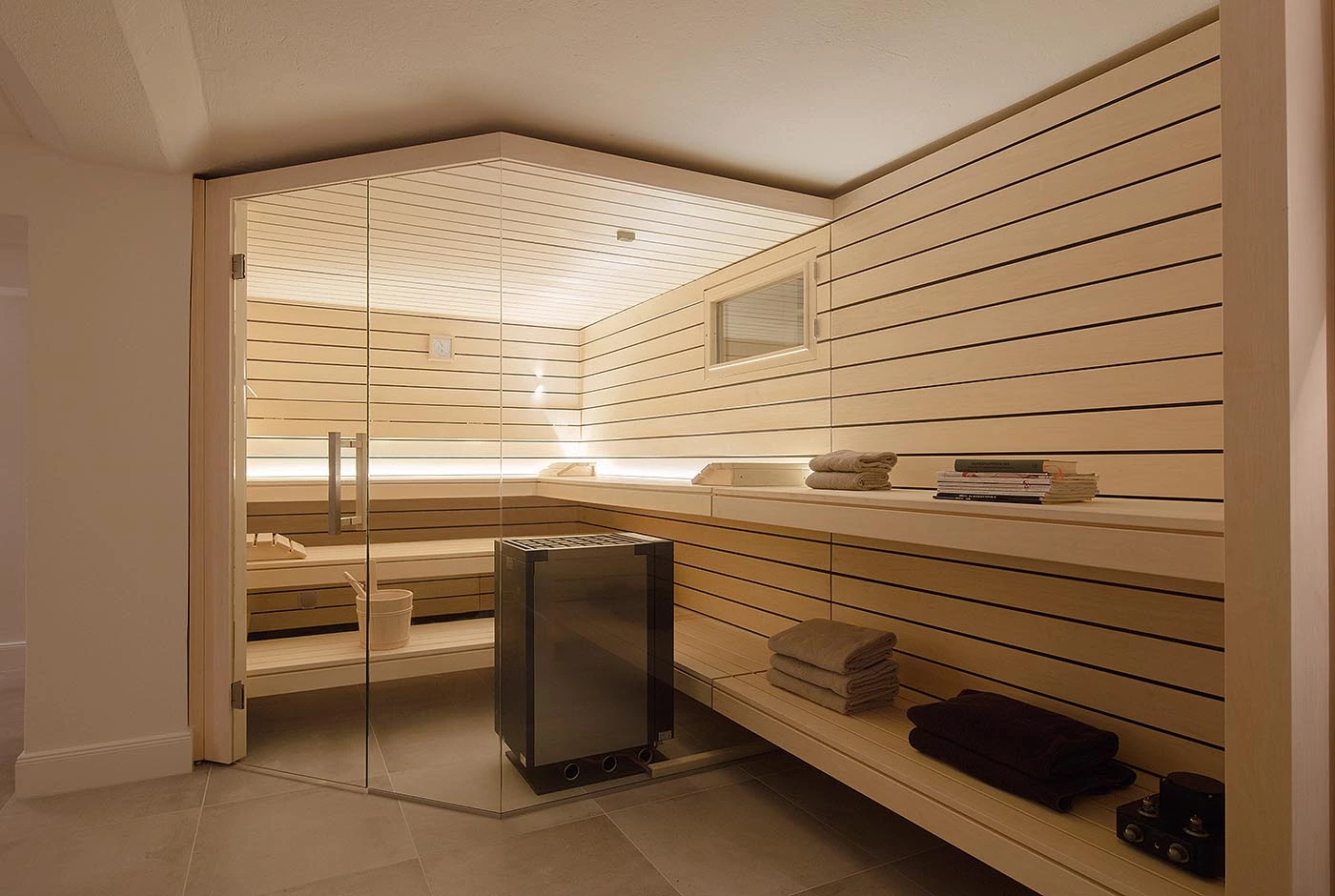
Space Requirements
A typical sauna measures about 6 feet by 8 feet, but you’ll need additional space for a changing area and a shower. Make sure your basement has enough room to accommodate all these requirements. You’ll also need to consider the ceiling height, as a standard sauna requires a minimum ceiling height of 7 feet.
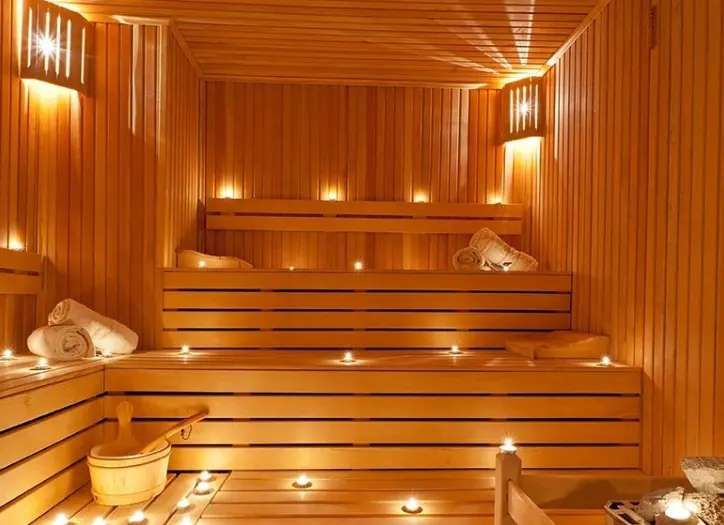
Electrical Requirements
A sauna requires a dedicated circuit with a minimum of 240 volts. Ensure that your basement has the necessary electrical supply to handle a sauna. You’ll also need to factor in the cost of running the sauna, as it can be an energy-intensive appliance.
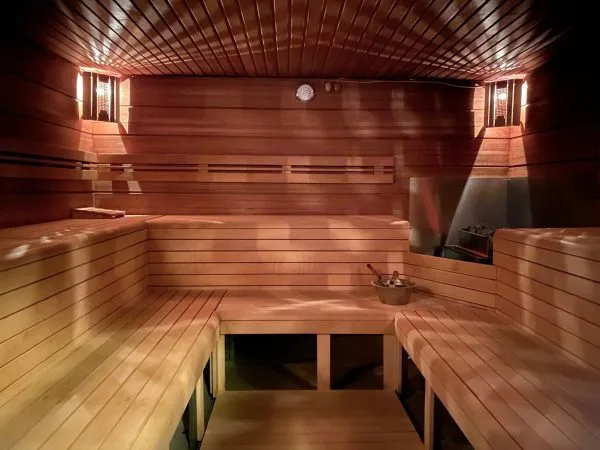
Ventilation
If your basement feels cramped and suffocating, consider increasing the ceiling height to create more breathing room. This not only adds more headroom but can also alleviate breathing problems associated with cramped spaces.
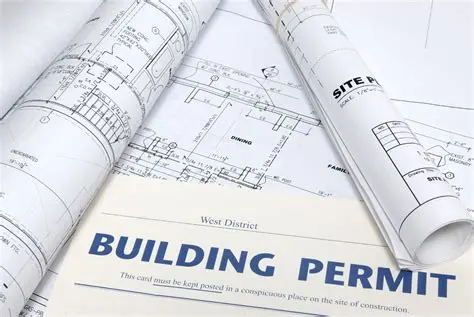
Building Permits
Before starting your sauna project, you’ll need to check local building codes to ensure that you’re following all the necessary regulations. This may include obtaining building permits, hiring licensed contractors, and following specific guidelines for electrical and plumbing installations.
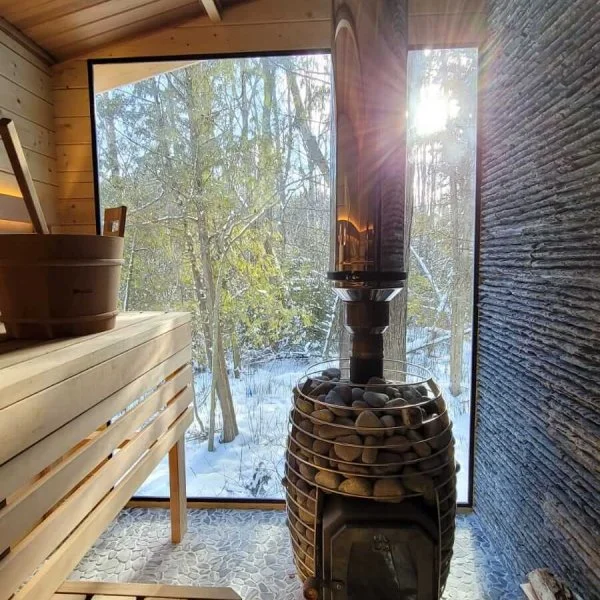
Installing a Basement Sauna
Once you’ve planned and prepared for your basement sauna, it’s time to start the installation process. Here’s a step-by-step guide to building your own sauna:
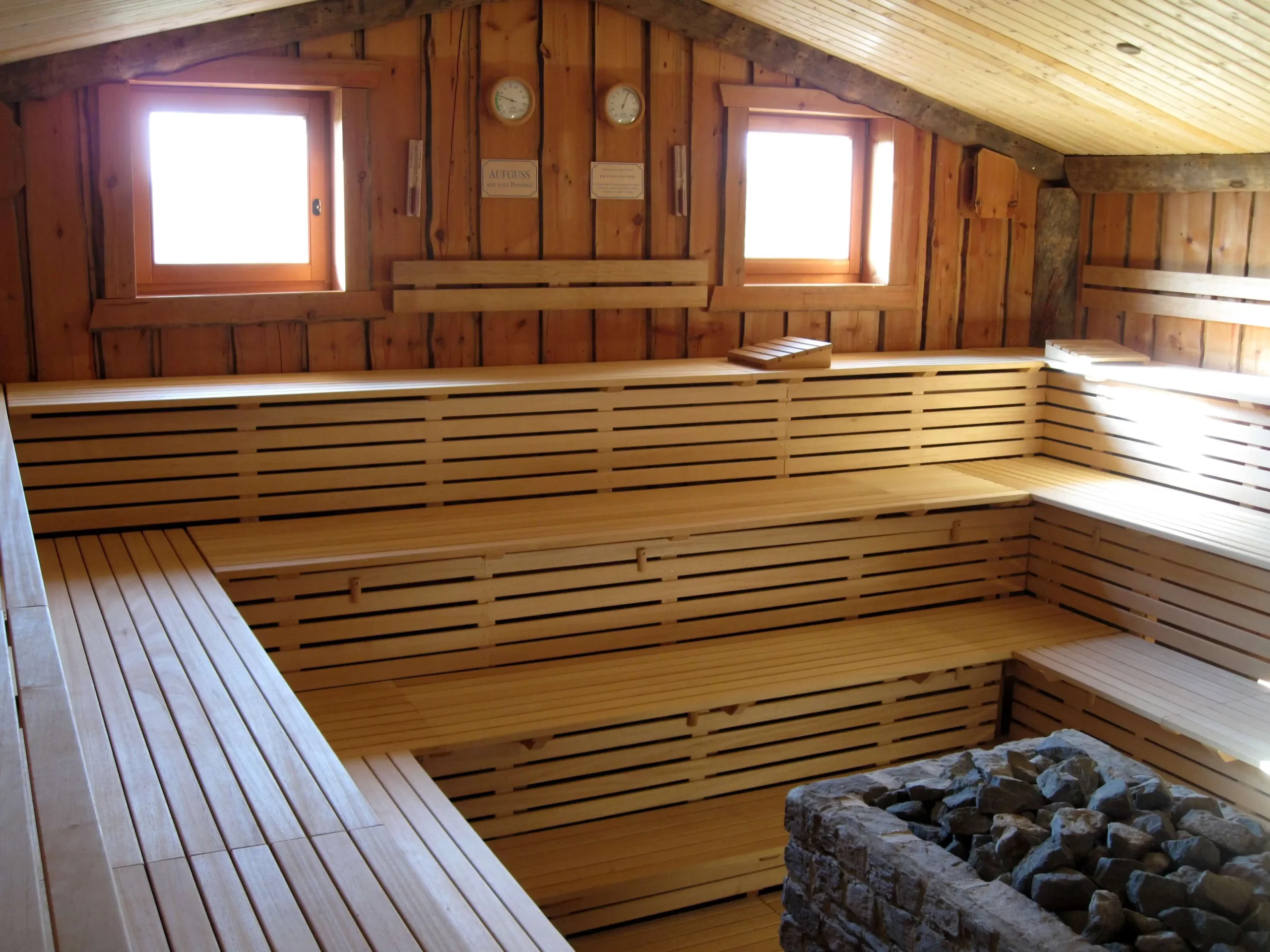
Framing
Start by framing the sauna space using moisture-resistant materials. This will help prevent mold and mildew from growing in your sauna. You’ll also need to install a vapor barrier to protect the framing from moisture.
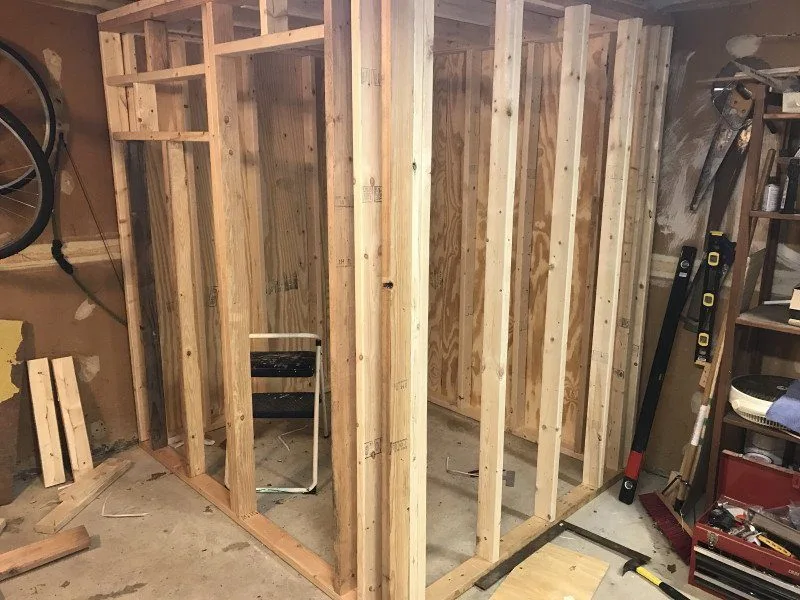
Insulation
Install proper insulation in the walls and ceiling of the sauna to maintain a consistent temperature and prevent heat loss. Use mineral wool or fiberglass insulation, as it’s both heat-resistant and moisture-resistant.
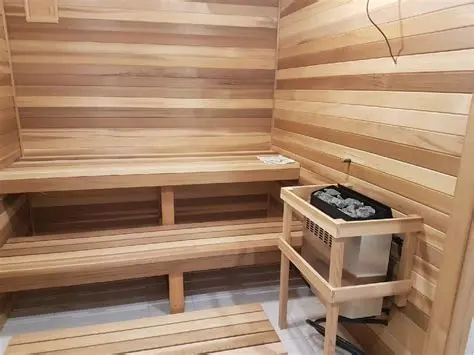
Sauna Heater
Select a suitable sauna heater that can heat up the space quickly and maintain a consistent temperature. There are various types of sauna heaters available in the market, including electric, wood-burning, and gas heaters. Electric heaters are the most common and easiest to install, but wood-burning and gas heaters can provide a more traditional sauna experience.

Flooring
Choose a non-slip, heat-resistant flooring material that can withstand high humidity levels. Some options include ceramic tile, vinyl flooring
Additional Considerations for Planning Your Basement Sauna
In addition to the basic requirements mentioned earlier, here are some other factors to consider when planning your basement sauna:
Sauna Style
There are different types of sauna styles to choose from, including traditional Finnish saunas, infrared saunas, and steam saunas. Traditional saunas use heat generated from a stove or heater to warm up the sauna room, while infrared saunas use infrared rays to heat the body directly. Steam saunas use moist heat to create a humid environment, which can be beneficial for those with respiratory problems. Consider which type of sauna is best suited to your needs and preferences.
Seating and Layout
When designing your sauna, consider the seating arrangement and layout. You may want to include multiple levels of seating to accommodate different users or add a bench for relaxation. The sauna door should also be positioned away from the heater to avoid direct heat exposure when entering and exiting the sauna.
Lighting and Atmosphere
Lighting can play a crucial role in creating a relaxing atmosphere in your basement sauna. Consider installing dimmable lighting or LED strip lights that can change colors to create different moods. You can also add aromatherapy oils or herbs to the sauna rocks to enhance the experience and create a pleasant scent.
Maintenance and Upkeep
Regular maintenance and cleaning are necessary to keep your basement sauna in top condition. Make sure to follow the manufacturer’s instructions for cleaning and maintenance of the sauna heater and ventilation system. Additionally, ensure that any spills or water leaks are cleaned up immediately to prevent mold and mildew growth.
Cost Considerations
Building a basement sauna can be a significant investment, so it’s essential to consider the overall cost before starting the project. The cost will depend on factors such as the size and style of the sauna, the type of heater, and the materials used. To avoid overspending, set a budget and stick to it.
Basement Finishing Cost Calculator
Difference Between commercial and basement Sauna
Basement saunas and commercial saunas both offer the benefits of relaxation, detoxification, and improved physical and mental health. However, there are significant differences between the two that may affect your choice.
Size and Capacity
Commercial saunas are generally larger and can accommodate more people than basement saunas. This is because commercial saunas are designed to serve multiple users at the same time, whereas basement saunas are typically designed for personal use. A larger sauna means more heat, which can improve the overall sauna experience.
Installation and Maintenance
Commercial saunas require professional installation and ongoing maintenance to ensure that they remain safe and functional. This can be expensive and time-consuming, making basement saunas a more attractive option for those who want a DIY project. Basement saunas are relatively easy to install and maintain, and you can often find pre-built sauna kits that simplify the installation process.
Cost
Commercial saunas are significantly more expensive than basement saunas. This is because commercial saunas are built to a higher standard and are designed to withstand heavy usage. Basement saunas, on the other hand, are built for personal use and do not need to meet the same standards. The cost of a basement sauna will depend on the materials you choose.
Privacy
One of the most significant advantages of a basement sauna is privacy. Unlike commercial saunas, which are often located in gyms, spas, or public areas, basement saunas offer complete privacy, allowing you to enjoy a relaxing sauna experience without interruption. This makes basement saunas an ideal choice for those who value privacy.
Customization
With a basement sauna, you have complete control over the design and customization of your sauna. You can choose the materials, layout, and size of your sauna, ensuring that it meets your specific needs and preferences. Commercial saunas, on the other hand, are often designed with a specific aesthetic and functionality in mind, and there may be limits to the customization options available.
Overall, the choice between a basement sauna and a commercial sauna will depend on your personal preferences and budget. If you value privacy and control over the design and functionality of your sauna, a basement sauna may be the better option. However, if you want a larger sauna that can accommodate multiple users and don’t mind the higher cost and ongoing maintenance, a commercial sauna may be the way to go.
CONTACT US
If you have any questions or concerns about developing a basement sauna, our team is here to help. We have a wealth of knowledge and experience in designing and building custom saunas, and we’re happy to offer our expertise to ensure your project is a success.
You can contact us via email or phone to schedule a consultation or ask any questions you may have. We’ll work with you to understand your needs and preferences and provide recommendations based on your budget, space, and lifestyle.
Our team can assist with every aspect of your sauna project, from planning and design to installation and maintenance. Whether you’re looking to create a luxurious spa-like experience or a simple and functional sauna, we can help you achieve your vision.
Don’t hesitate to reach out to us for more information. We look forward to hearing from you and helping you create the perfect basement sauna for your home.
Embark on a journey of endless options to transform your basement into your dream space now
FAQS
Q: Is a basement sauna a good idea?
A: Yes, a basement sauna can be a great idea if you have enough space, proper ventilation, and electrical supply. It can provide a private, relaxing, and healthful space to enjoy the benefits of sauna therapy without leaving your home.
Q: How much does it cost to build a basement sauna?
A: The cost of building a basement sauna can vary depending on various factors such as the size of the sauna, materials used, electrical and ventilation requirements, and labor costs.
Q: What materials are suitable for a basement sauna?
A: Suitable materials for a basement sauna include moisture-resistant wood, such as cedar or redwood, heat-resistant flooring such as ceramic tiles, and mineral wool or fiberglass insulation.
Q: What are the electrical requirements for a basement sauna?
A: A basement sauna requires a dedicated circuit with a minimum of 240 volts. It’s essential to hire a licensed electrician to install the circuit and ensure that your basement has the necessary electrical supply to handle a sauna.
Q: How do I maintain my basement sauna?
A: To maintain your basement sauna, it’s crucial to clean and disinfect the sauna regularly, remove any debris, and ensure proper ventilation. You should also follow the manufacturer’s instructions for maintenance and repair and inspect the sauna periodically for any damage or wear and tear.
Q: Can I install a sauna in a basement with low ceilings?
A: It’s not recommended to install a sauna in a basement with low ceilings as a standard sauna requires a minimum ceiling height of 7 feet. However, there are low-ceiling sauna options available in the market that may be suitable for your basement.
Q: Do I need a building permit to build a basement sauna?
A: Yes, you’ll likely need a building permit to build a basement sauna. You’ll need to check local building codes to ensure that you’re following all the necessary regulations, obtaining building permits, and hiring licensed contractors for electrical and plumbing installations.
